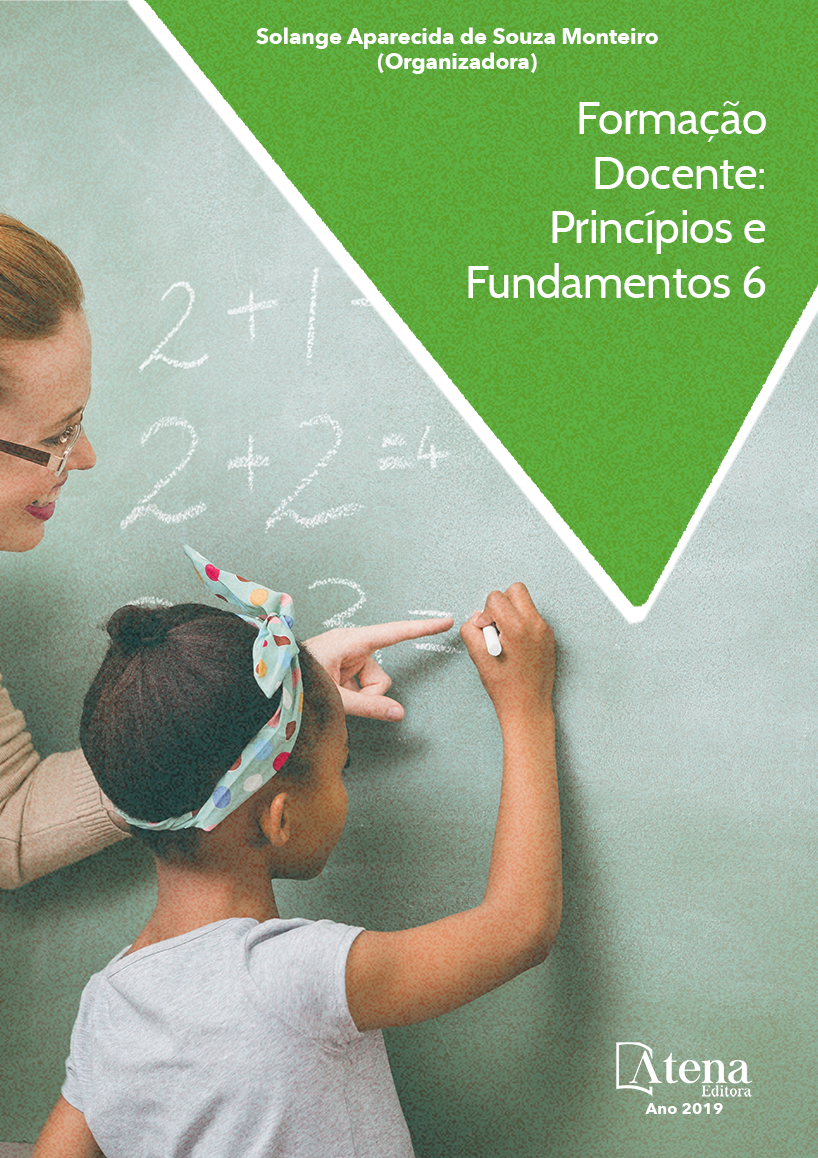
A FORMAÇÃO DE PROFESSORES DO ENSINO SUPERIOR PARA A EDUCAÇÃO DAS PESSOAS COM DEFICIÊNCIA
O Brasil, nas últimas décadas, investiu
no desenvolvimento de políticas inclusivas
com relação às pessoas com deficiência.
Principalmente, a partir da Lei de Diretrizes e
Bases da Educação Nacional (1996) que os
pressupostos da educação especial, entendida
como modalidade da educação escolar,
assumiu o papel de uma política educacional
inclusiva que atingiu todos os níveis, etapas
e modalidades da educação. Nesse processo
estão as políticas de acesso e permanência
das pessoas com deficiência no ensino superior
que indicaram para a construção de espaços
acessíveis, recursos pedagógicos, informações
para a comunidade técnico-administrativa, apoio
institucional e, como ponto central do processo
inclusivo, na formação dos professores. Nesse
sentido, o objetivo central de nosso estudo
foi realizar uma revisão bibliográfica a fim
de mapear experiências sobre a formação e
preparação de professores do ensino superior
para o atendimento educacional de alunos com
deficiência. Para tal foram analisados em seu
conteúdo cinco artigos selecionados a partir
das palavras-chave: formação, educação
especial, educação inclusiva, ensino superior
e universidade publicados na base de dados
Scientific Electronic Library Online (www.scielo.
br) compreendendo o período entre 2006 e 2016.
A análise desse material indicou que, apesar
de tratarem da formação, em nenhum deles foi
apresentada ou indicada uma experiência de
formação dos docentes. Muito provavelmente,
tal escassez de relatos de experiência revela a
realidade de falta de investimento e de apoio à
formação de docentes para educação inclusiva
no ensino superior, o que pode dificultar, e muito,
a permanência das pessoas com deficiência no
ensino superior.
A FORMAÇÃO DE PROFESSORES DO ENSINO SUPERIOR PARA A EDUCAÇÃO DAS PESSOAS COM DEFICIÊNCIA
-
DOI: 10.22533/at.ed.72919300522
-
Palavras-chave: pessoa com deficiência, formação docente, ensino superior.
-
Keywords: Atena
-
Abstract:
In the last decades Brazil has
invested in the development of inclusive
policies regarding people with disabilities. Since
the promulgation of the Law of Guidelines
and bases of national education (1996), the
assumptions of special education, understood
as a modality of school education, assume the
role of an inclusive educational policy that must reach all levels, stages and modalities
of education. In this process are the policies of access and permanence of people
with disabilities in higher education. However, these conditions do not only involve the
development of accessible spaces, but also pedagogical resources, information for
the technical-administrative community, institutional support and, as a central point
in this inclusive process, teacher training. Therefore, the purpose of the study was to
perform a bibliographical review to map experiences of university professors for the
educational attendance of students with disabilities. Five articles were selected from
the keywords: training, special education, inclusive education, higher education and
university in the Scientific Electronic Library Online database (Scielo) between 2006
and 2016. The results pointed that none of them presented an experience of teacher
training, despite the fact that they deal with training. The central theme of the articles
was the difficulties and obstacles in the training of higher education teachers for special
education. Such a shortage of experience reports reveals the lack of investment and
support for teacher education for inclusive education in higher education, which may
hinder the permanence of people with disabilities in higher education.
-
Número de páginas: 15
- Rinaldo Molina
- Camila Rennhard Bandeira de Mello


